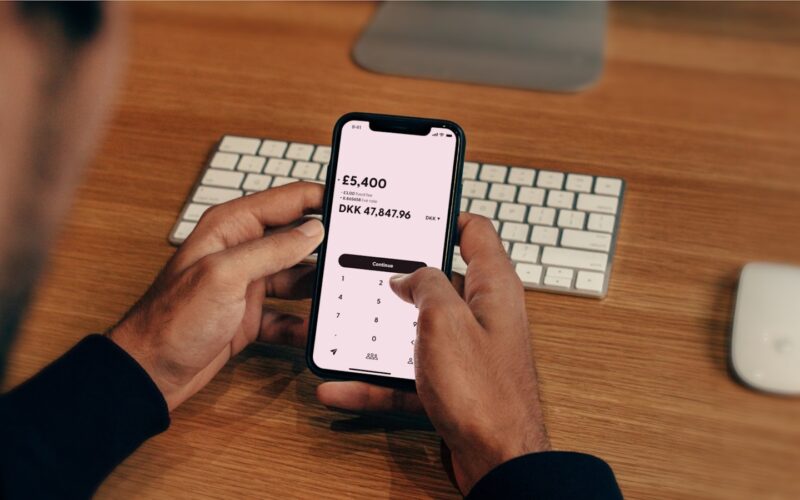Managing money used to be a complicated task involving notebooks, receipts, and manual calculations. Today, digital tools have transformed the way we handle personal finance, making it easier, faster, and far more organized. Whether you’re tracking expenses, planning savings, or setting long-term goals, technology offers solutions that fit into your daily life without overwhelming you.
But how exactly do these tools simplify personal finance? And which strategies ensure that technology serves you, not the other way around? Let’s explore the key ways digital tools can make managing money stress-free.
1. Expense Tracking Becomes Effortless
The End of Manual Recording
In the past, keeping track of expenses meant collecting bills and writing them down in a ledger or spreadsheet. This process was time-consuming and prone to errors. Today, apps and platforms can automatically track your spending by syncing with your bank accounts. Every purchase, whether online or offline, is recorded instantly, giving you a real-time picture of where your money goes.
This automation saves time and removes guesswork. You no longer have to wonder how much you spent on dining out or groceries because the app categorizes transactions for you. The result? Clear visibility and better control over your budget.
Spotting Patterns to Improve Decisions
Tracking isn’t just about numbers; it’s about understanding habits. Many tools provide visual insights—charts, graphs, and spending summaries—that reveal patterns you might miss otherwise. Seeing that 25% of your budget goes to entertainment, for example, can prompt adjustments without feeling restrictive. This clarity allows you to make informed choices rather than reactive ones.
2. Goal Setting and Budget Planning Made Simple
Custom Budgets at Your Fingertips
Digital finance tools let you create budgets tailored to your lifestyle. Instead of a generic template, these platforms allow you to allocate funds for categories like groceries, travel, savings, and even personal treats. Once set, the system monitors your spending and alerts you when you’re close to exceeding limits.
This proactive approach reduces stress. You don’t find out you overspent at the end of the month—you get reminders along the way, which keeps your finances on track without constant manual checks.
Visualizing Progress Encourages Discipline
Seeing progress is motivating. Many apps turn financial goals into visual dashboards, making savings feel like a game. Whether you’re saving for a home, a family trip, or an emergency fund, watching a progress bar grow gives a sense of achievement. This small psychological boost often makes the difference between sticking to a plan and abandoning it.
3. Real-Time Access to Financial Health
Information Anywhere, Anytime
Gone are the days when you had to wait for monthly statements to know your balance. With digital tools, your entire financial snapshot is available on your phone or computer. This real-time access reduces anxiety and helps you make quick decisions. Planning a purchase? You can check if it fits your budget in seconds.
This convenience also helps avoid mistakes like overdrawing accounts or missing due dates. Notifications and reminders ensure you stay updated without constant effort.
Integration Creates Simplicity
Modern finance tools often integrate with multiple services—bank accounts, credit systems, investment platforms, and even budgeting apps. This means you don’t have to log in to several places to get the full picture. Integration eliminates complexity, saving time and reducing the chances of oversight.
4. Automation Reduces Human Error
Bill Payments Without Stress
Late payments often lead to extra charges, which eat into your budget unnecessarily. Automation solves this by scheduling recurring bills—utilities, rent, subscriptions—so they’re paid on time, every time. No more sticky notes or last-minute scrambles.
Automation also applies to savings. Setting up automatic transfers to a savings account ensures you consistently put money aside before it’s spent elsewhere. This “pay yourself first” approach builds financial security without requiring daily effort.
Accuracy That Builds Trust
Manual calculations often lead to mistakes, and even small errors can throw off an entire budget. Digital tools eliminate these errors by doing the math for you. This accuracy means your financial decisions are based on reliable information, not guesswork.
5. Learning and Guidance Through Apps
Educational Features That Empower Users
Many digital finance tools aren’t just trackers—they teach. They provide tips, spending insights, and even personalized advice based on your habits. This guidance helps you understand not only where your money goes but how to improve your relationship with it.
Some platforms also offer simulations. For example, if you increase savings by 5%, the app can show how much that adds up to in a year. These insights turn abstract goals into actionable plans.
Community and Expert Support
Certain tools come with forums or expert guidance features, where you can learn from others or ask questions. This builds confidence for those who find financial planning intimidating. It’s like having a financial coach in your pocket.
6. Security and Peace of Mind
Protecting Your Information
Concerns about security often make people hesitant to embrace digital finance. But most reputable tools use encryption and secure authentication to keep your data safe. Features like biometric logins and real-time fraud alerts add another layer of protection.
Knowing your finances are secure while still accessible gives peace of mind. You get the benefits of convenience without compromising safety.
Backup and Recovery
Unlike paper records that can be lost or damaged, digital tools offer cloud backup. This means your financial history stays intact and accessible even if you change devices or experience technical issues.
Conclusion
Digital tools have revolutionized personal finance, turning what was once a complicated process into a streamlined experience. From automated tracking and real-time updates to visual goal setting and built-in security, these tools make managing money less stressful and more effective.
The key is choosing the right tools for your needs and using them consistently. With the right approach, technology doesn’t just simplify personal finance—it empowers you to take control, make better decisions, and build a future aligned with your values.
The future of financial management isn’t about more effort—it’s about smarter tools that let you focus on what truly matters: living a balanced, purposeful life.








